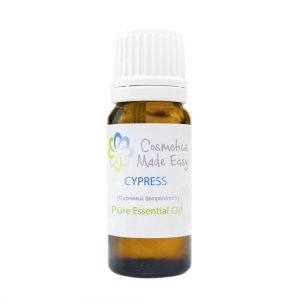Description
Ylang Ylang Essential Oil
General Description: Ylang Ylang is a tropical tree growing up to 60ft tall with large pink, violet or yellow flowers. The tree flowers throughout the year and is harvested immediately after the rain season and throughout the dry season. The flowers are hand-picked just before daybreak when oil content is at its highest. It is cultivated in Java, Sumatra, The Reunion Islands, Madagascar and Comores Islands and the geography has a significant impact on the quality and aroma of the oil.
Ylang ylang essential oil comes in several grades which are each suited to different purposes and each have different aromas. This is our standard ylang ylang which is a mix of different grades and flowers, blended to produce a pleasing, predictable aroma
We also stock Ylang Ylang Extra, which comes from the purest, lightest, first fraction and is considered the best aromatically and therapeutically, and Ylang Ylang III which is more affordable than Ylang Extra with a deeper, more intense aroma. Personal preference is important when choosing ylang ylang oil. Botanical Family: Annonaceae
Ylang ylang essential oil is very potent and should be diluted well. In high concentrations it can cause headaches, light-headedness and nausea. It is therefore best blended with lighter oils, such as citrus, to lighten the heavy fragrance.
Commonly associated with: Ylang ylang essential oil is a great addition to haircare products where it is said to be a tonic for the scalp and helps balance sebum for oily hair and skin. The deep, sensual and appealing aroma of ylang ylang lends itself to use in exotic perfumery. Traditionally it has been associated with enticing sensuality, releasing sexual inhibitions and arousing the senses with its erotic, euphoric aroma. Emotionally the oil is good for nervousness, fear and anger and may be helpful for easing the shock of stressful situations and negative emotions.
| Common Name: | Ylang Ylang |
| Botanical Name: | Cananga Odorata |
| Scent: | Sweet, Floral, Exotic, Heady |
| Note: | Middle |
| Extraction Method: | Steam Distilled |
| Country of Origin: | Comores |
| Plant Part Used: | Flowers |
| Appearance: | Yellow, Slightly Viscous |
| Blends well with: | Bergamot, Chamomile, Geranium, Jasmine, Lavender, Lemon, Mandarin, Rose, Rosewood, Vetiver |
| Main Constituents: | Linalool, caryophyllene, germacrene D, geranyl acetate, benzyl acetate, benzyl benzoate |
All our essential oils and absolutes are…
• 100% Pure, natural and unadulterated
• Suitable for use by home users and professionals alike
• Suitable for use in diffusers, oil burners, massage and skin care products
• Supplied in dark glass bottles to protect from light
• Fitted with a tamper evident lid and dropper
• Labelled with the common name, botanical name, country of origin, batch code and best before date
• Fully traceable to source
• SDS, allergen declaration and Certificate of Analysis available for download
Using Your Oil Safely & Effectively
• Keep out of the reach of children and animals
• Always dilute before applying to the skin. The safe percentage is different for each oil so should be checked.
• Do not take internally – whilst there is scope for the internal use of essential oils, this should only be done by a trained practitioner.
• Keep away from the eyes and seek medical advice if undiluted essential oil gets in the eye
• Remember, essential oils are potent and only a little is needed
• We recommend that you read our Basic Guide to Using Essential Oils which you can find in our Information Hub
Responsible Marketing
The Medicines act requires that, as vendors of essential oils, we do not say anything that could be interpreted as a medical claim. This means we cannot suggest that essential oils help, alleviate or cure any disease, disorder or medical condition, even very minor conditions like headaches, colds or congestion. Nor can we inform you of any traditional remedial uses of essential oils.
Scientific research is being carried out into the properties of essential oils but as, like wine, the oils vary from batch to batch, the findings can only be applied to the specific batch tested. This means that in the EU, essential oils cannot be licensed to make remedial claims in relation to a specific disease or adverse condition of the body of mind.
We do want you to be as informed as possible when using our essential oils and therefore would suggest that you do your own research either through an accredited aromatherapy course or using reliable books by industry recognised experts Robert Tisserand, Len Price or Shirley Price. The Aromatherapy Trade Council operate a voluntary code of conduct which we abide by and they are a good source of information. Aromatherapists registered with the IFPA may also be able to offer you advice. Please be wary of information you find on the internet as it is mostly unregulated and often promotes unsafe practices and makes unsubstantiated claims.
The information provided by Cosmetics Made Easy is for educational purposes only. It is not guaranteed to be complete or accurate, nor is it intended to diagnose, treat, cure or prevent any disease, disorder or medical condition. The use of any information provided is the sole responsibility of the user. We advise you to consult with a qualified health care professional prior to using complementary therapies.










Reviews
There are no reviews yet.